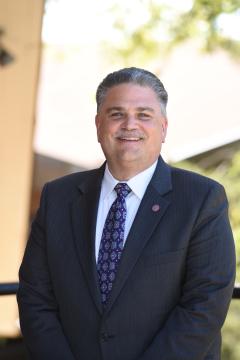In the last Wisconsin Independent, I shared my background and how I was looking forward to serving as the next WAICU president. I have now officially started my new role and I am grateful for the warm welcome
I have received as a new Wisconsin resident and association leader. Our sector is a vital part of the higher education landscape in Wisconsin. Each year our 23 institutions serve more than 53,000 students, many of whom go on to spend their careers in our great state helping to build and grow our economy.
There is, rightly so, much focus today on workforce development. I hear this nearly every day in the news and in conversations with colleagues and friends. Workforce development often is thought of in narrow terms related to preparation for the trades. While certificate and apprenticeship programs are essential components of a workforce development program, so are the broad spectrum of undergraduate and graduate degrees provid-ed by the institutions in Wisconsin’s independent higher education sector. The Federal Reserve Bank defines workforce development as follows:
“Workforce development is an essential component of community economic development in any economic climate, and certainly even more critical during the financial crises we’re experiencing today. Generally speaking, the term has come to describe a relatively wide range of activ-ities, policies, and programs employed by geographies to create, sustain, and retain a viable workforce that can support current and future business and industry.”
Wisconsin needs workers in manufacturing, agriculture, and transpor-tation as well as medicine, engineering, education, and business. Our institutions are making significant contributions to workforce develop-ment in Wisconsin. We stand ready to help our state meet its current and future employment needs.
The Wisconsin state government has an important role to play in workforce development as well. Congratulations to our newly elected and reelected state legislators. I look forward to getting to know each of you and working together with you on important education initiatives. We have much collective work to do to prepare the next generation of leaders and workers for employers across Wisconsin. One specific program that is of vital importance is the Wisconsin Grant.
This need-based grant encourages Wisconsin residents to remain in the state for their undergraduate education. Increasing the Wisconsin Grant will make it possible for even more students to attend college – and to stay in the state to do so. This investment will pay dividends in terms of increased income tax revenue and civic engagement from our graduates. It is a win-win for the citizens of Wisconsin.

